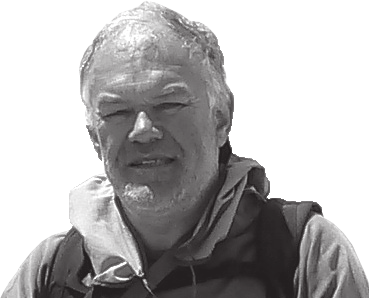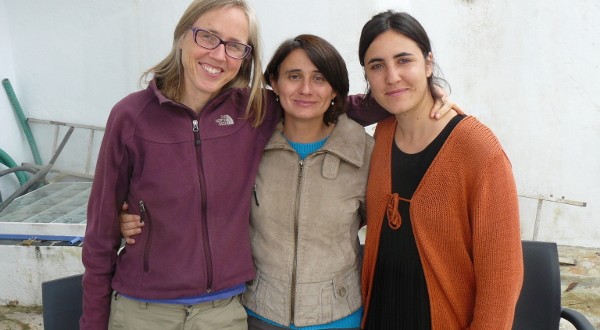Annelieke van der Swijs (48), Sara Carvalho (40) and Sandra Rocha (26) work alongside over 30 other members of the Coimbra Transition group. They deal both with social needs and the ecological and economic problems existing in this city of 145,000 inhabitants and temporary home to over 30,000 students. Everything started in 2009 with the organic garden in the Coimbra Botanical Garden and the “Little Botanical Market” providing spices and aromatic herbs. In 2013, the association was founded to a large extent because the Municipal Council and other local entities were only willing to take the Transition group seriously when it had a juridical foundation.
And all of a sudden, lettuces, carrots and cabbages were growing there…
“The local food chain is top of our agenda”, Sandra Rocha clarifies to ECO123. A series of debates led the Coimbra in Transition group to act to set up the “Culinary Workshop”, a creative canteen also providing many different vegetarian dishes. Invitations to communal lunches and dinners opened up an opportunity for local commerce with their exclusive use of locally sourced foods. “Everybody needs to eat. And if the food is tasty, everybody also wants to get involved”, the coordinator affirms, “This thus became the way we put the Kyoto protocol into practice in Coimbra”.
Everything that is new also finds its own timings. On Rua Direita, the transition group now has its own open air facility. On this site, where the metro is one day due to be built, there is a huge open hole. This is exactly where the Transition group has very recently got under way with a new urban agriculture project with all citizens called upon to join in with developing the Garden Orchard.

About the author
Uwe Heitkamp, 53 years old, started working after university in daily newspapers and from 1984 on in public tv broadcasting companies such as WDR (Collogne), NDR (Hamburg), SDR (Stuttgart/Baden-Baden) in the ARD (first programme), wrote several books and directed the cinema movie about the anti nuclear movement in Germany in 1986 (Wackersdorf). After emigration in 1990 he founded 1995 the trilingual weekly printed newspaper “Algarve123” and later the online edition www.algarve123.com. Heitkamp lives for 25 year in Monchique, Portugal. He loves mountain hiking and swimming in streams and lakes, writes and tells stories of success from people and their sustainable relationship between ecology and economy. His actual film “Revolutionary Roads” tells the 60 minute story of a long walk crossing Portugal. 10 rural people paint a picture of their lives in the hills of the serra and the hinterland. The film captures profound impressions of natural beauty and human life. Along which path is the future of Portugal to be found? (subscribe to ECO123 und watch the documentary in the Mediatec)
 Eco123 Revista da Economia e Ecologia
Eco123 Revista da Economia e Ecologia



